Edward Carr shares how he’s built 2 thriving clubs through word of mouth, while helping his community combat cyberbullying and live an empowered life.
IN THIS EPISODE:
- How to harness the power of word of mouth
- Tips to boost martial arts community engagement
- How to encourage bullied children to share their experiences
- Edward’s book against bullying, Lift Them Up: How to Rise Above Bullying and Live an Empowered Life
- Effective ways to build a strong online presence
- And more
*Need help growing your martial arts school? Learn More Here.
TRANSCRIPTION
GEORGE: Hey, George Fourie here. Welcome to the Martial Arts Media™ business podcast. So today, I have a special guest with me: Edward Carr from New Hampshire in the United States. And so, Edward owns two locations, Tokyo Joe Studios and Team Link MMA, both at the same actual location, in the same facility, on two separate floors.
So, we chat a bit about that divide, and also how he's built a thriving business. 320-330 plus students, mostly on word of mouth. And, look, always when someone says word of mouth, I'm always curious, because it always means there's a strong program, a strong product, and much more to it, right?
And so we chat a lot about things that they've done in the community, their community promotions, also his book against anti-bullying, that positions him as an authority. And all this, how it helped them thrive through the pandemic, and almost not losing any students after being locked down for a full year. So, we're going to jump into that.
If you are new to the podcast, do check out on this page martialartsmedia.com/126, depending where you're listening or watching, and be sure to download our ebook, ‘The Ultimate Facebook™ Guide for Martial Arts Schools', that will help you create your next winning ad campaign. And of course, wherever you're listening or watching, make sure you hit that subscribe button, so that you get notified when we release our next episode.
Alright, let's get into it. So, Edward, over the last couple of months, or just in general, what's been the top marketing strategy and lead generator for you?
EDWARD: It would be a lot of word of mouth, a lot of word of mouth and online. You know, some online advertising definitely helped out, but the word of mouth has been incredible- with all the students promoting, you know, the school and, you know, me being involved in the schools a lot, also has helped out quite a bit, you know.
Just like I said, just promoting and having fun, and, you know, going from there. And just letting the kids know, you know, letting everyone know, you know, what we're doing, what we're about, promoting safety, you know. Letting them know, like, even though the pandemic, you know, people are still nervous, you know, having all the safety stations everywhere, and all that.
Just making everyone feel comfortable, and then having them go out and telling all their friends, “This is a place to go to exercise and have fun”, and, you know, how do kids learn.
GEORGE: So, if you've got great word of mouth, it's always a sign that you've got a great product, right, and great training and good program. But other than that, how do you feel you kind of orchestrate a lot of word of mouth? And what do you think? What do you think escalates it?
EDWARD: Every time someone competes or does something. Well, we've had a few big name fighters, you know, fight for us. That always brings in a lot of students, people see it, they watch it on UFC Fight Pass, you know, they go from there. We've had a lot of kids… Muay Thai tournaments, grappling tournaments, and karate tournaments – they're starting to do them again and that's always been great.
You know, kids want a medal, a trophy, they're all happy, they tell their friends, you know, and that's the type of word of mouth stuff that's happening. I wrote a book, and it was on bullying, and I got that involved in the schools. So, you know, they're, you know, me being involved in the schools and helping out and talking to the children, you know, about bullying and this and that, it's also been huge.
So, it's a good word of mouth, you know, think, you know, for me, you know, to do all that. Like I said, there's been a little bit of online, you know, stuff, I've done some, you know, contests here and there, you know, for everything, get the students involved, you know, and just try to work it, make it a grind.
GEORGE: What's the book called?
EDWARD: Lift Them Up.
GEORGE: And it's available on Amazon?

EDWARD: Yeah, it's available on Amazon. Yeah, Amazon, the book is called Lift Them Up: How to Rise Above Bullying and Live an Empowered Life. You know, just as in deal with this typical boy who deals with cyber bullying, you know, it goes through the whole… You know, everyone thinks bullying, you just, you know, pick on someone.
But, you know, a lot of people don't realize there's a whole cyber bullying, internet bullying, texting bullying and all this. There's so much out there that people don't understand or realize. So, you know, I mean, it's done well. I've sold like 400, 500 books, I can't complain.
GEORGE: That's perfect. Well, I hope you sell 4000, 5000 more after we do this podcast, right?
EDWARD: Absolutely!
GEORGE: If you don't mind sharing a little bit of insight, because I mean, it's a whole different planet, just like you saying, you know, it used to be bullying, face to face. But, you know, if I look at kids today, I think they're dealing with this whole – a whole different form of bullying, that's, it's pretty intense. And I don't know, I sometimes wonder how kids have actually got to deal with that, right?
If there's, especially if there's a group of people that are bullying you, or doing cyber attacks and just being nasty kids, what's your advice to kids on how to deal with that?
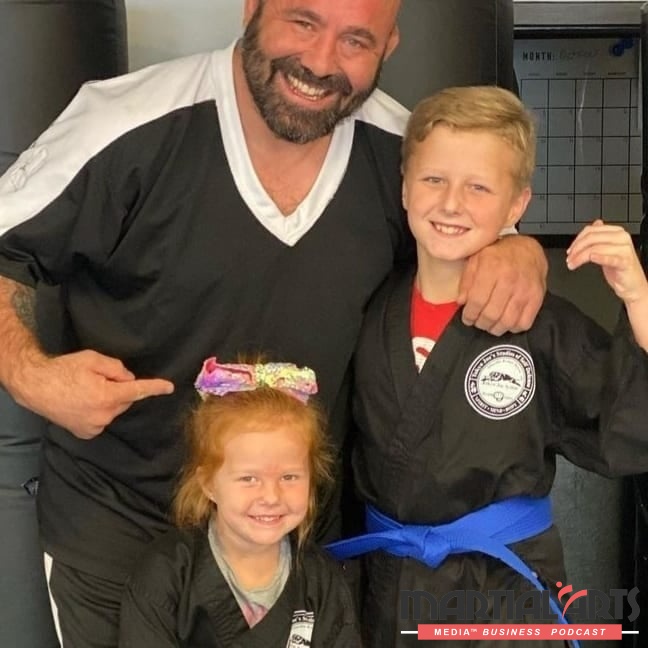
EDWARD: Communication. A lot of kids tend to hide things, you know, and I have a lot of kids that feel very comfortable coming to talk to me, and not even their own parents, or teachers, because they're afraid or scared. And it's just communication, I'm trying to, you know, when I talk to them, I want them to feel comfortable.
I want them to realize it's okay to talk to the teachers, it's okay to talk to your, especially your parents. Let them know what's going on. Too many kids out there just bottle it up, and unfortunately, you know, bad things do happen. And you know, a lot of times they'll bottle that up and hold that negative energy inside, and they explode, and something negative can happen off of that, you know.
And that's all, the key, you know, is communication. Letting them know, you know, that people are out there that, you know, these people in these positions care for them and want the best for them – and want to help them out.
GEORGE: And so, is that something you do on the mats, like mat chats and things like that?
EDWARD: Yeah, we talk a lot about that, you know, on the mats. At the end of every class, I usually have, like, a little, you know, 2 – 3 minute mat chat with them. And we're always talking about bullying, you know, certain situations, you know, just how to train, you know, how to deal with it, you know, how to use your words first, you know.
Everyone thinks, a lot of kids think too, you know, how to deal with things they don't understand either, gotta make them aware. Like, they think, “Okay, I know karate and martial arts, I'm just gonna go beat the bully up.” That's not what it's all about, you know, trying to get them to realize you go talk to them, try and make them – be their friends or walk away.
If there is a self defense situation there, then of course, you know, deal with it in the proper way. But definitely learn how to use your words first, and your brain. I always tell them to use your brain first, speech smart.
GEORGE: That's awesome. Cool. So, talking about online, moving through the pandemic, and you mentioned earlier that you managed to maintain almost a full student base, how long were you locked down for? Just curious.
EDWARD: About a year. It was about a good year, you know, and, you know, you weren't allowed to have any, I could do one-on-one classes. I had a couple people, you know, that would, I would make sure at 12 o'clock, they could come in, it was just them, no one else could be around.
I'd have to give a half hour's worth of time in between, so I could clean and sanitize and then could have another private – but that was it. No group classes. I could do family classes, but I'd have to do them outside. So, thank goodness, a lot of this was during the summer. So, it worked out pretty good.
GEORGE: Yeah.

EDWARD: And so I'd do a lot of group classes, you know, with families outside in the parking lot, which, another way in which pretty good advertising too, because then people driving by, seeing us working out and exercising and doing something, so it was good advertising in that way. So, you know, it was rough. But it was a learning experience for me, because trying to develop a system that keeps everyone happy on Zoom.
You know, I've never taught, I mean, I've done a lot of seminars and this and that, but I've never taught on Zoom, you know, pretty much eight hours a day, standing in front of a camera, trying to teach forms. You know, trying to teach, you know, a kickboxing combination and make sure they got proper footwork. It was a learning experience for me too.
But it worked and kept everyone happy. And, you know, like I said, we just always have a contest, I always had something going on just to keep them, you know, feeling good about themselves.
GEORGE: What do you think you've taken from that?
EDWARD: It's made me definitely a better instructor off of that. You know, it definitely opened up my eyes a little bit. I definitely became better – just made me practice a little… You know, we kind of get into, I don't want to say a rut in a bad way, but we get in a rut and a daily routine of coming into the school, four o'clock class, five o'clock class, six o'clock class.
And what it made me do is step out of the box a little bit – I hadn't done that for a while, because I got a successful school. I'm happy, I'm always wanting to grow, do what it takes, but I was, you know, doing well. So, I was like, okay… But this made me step out of the box a little bit, made me realize, you know, “Okay, start training, you got to start training, you've got to start using your mind, come up with these ideas, you know.”
You know, make these kids happy. Let these kids know you care, let the parents know you care. You know, BJJ, MMA make them happy, make sure, you know, and be a coach. And so it made me step out of the box and become a better person for sure.
GEORGE: Were there any, like, specific obstacles that you faced with the kids having to show up online and getting involved and engaging?
EDWARD: Yeah, it was interesting because I'd have to mute a lot of stuff. Like, they could hear me, but I couldn't hear them, because, you know, we'd have 30, 40 people online. Sometimes you can't have everyone, you know, they're still at home. So, they still have their home life.
So, you have dogs in the background or brothers and sisters poking their brothers online. So, at times it was a horror show. It was like, “Whoah, what's going on?!” But, I mean, that was the biggest obstacle, the biggest thing was just like, you know, trying to overcome all that at first, but once, you know, after a week or so, it smoothed out pretty well.
And it wasn't really that bad. You know, just trying to engage them, to let them know that they could do martial arts on the computer and not just play video games was rough, because I would have some students that would blank the screen, but forget to mute it, and I could hear them playing video games in the background.
So, then the parents would ask me how they're doing. I'm like, I don't know, you need to ask him, he's been playing video games. So, you know, stuff like that would happen on and off. But overall, it was, you know, it was definitely tough keeping them engaged – because just staring at a computer screen, even my own daughter would do karate in her bedroom. And, you know, I'd have to tell her to stop jumping on the bed, like, “Listen, you're in class, stop jumping on the bed.” Trying to keep them engaged was definitely a learning experience.
GEORGE: So, what did you do to have that constant state change? You know, because I mean, you can't let them do one thing too long to get in – yeah, boredom kicks in.

EDWARD: I just constantly kept them moving as much as I could. You know, sometimes in a normal class, you know, you take your time, you go over form more, there's more of a pause, more of a… So, you couldn't do that online.
I almost taught it like a cardio kickboxing class, you know, where I just kept moving and moving and moving and moving and moving. Class is only 30 minutes long, but it was, like, just keep them moving. Don't give them that time to stop. You know, don't give them that time to think.
We would do a form to warm up and right from that form we'd go right into some kicking, some punching, and then we'd go into some, you know, self defense techniques, and I'd make it a game and just keep them moving. So, they didn't have that time to go look around to see who's playing outside or stuff like that.
GEORGE: Gotcha. And then jiu jitsu – and how did you handle the BJJ side, and the adults, and so forth?
EDWARD: That was the tough part. Like teaching Thai kickboxing or MMA wasn't so bad, because you could teach them some combinations. So, sprawls, double legs, you can teach transitions, and stuff, that was okay.
But the BJJ was tough, you know, like I had, when – Everyone would make their own dummy, grappling dummy, or they could buy one from me, you know, but, and, you know, whoever made the best dummy won a free gift, you know, stuff like that. So, we had, like, 15 people make their own grappling dummies. So, that's part of getting them involved and engaged, a few people bought some off for me.
And then basically, it was just teaching them transitions and moves and talking to them about, you know, the connecting points, you know, always have points of control and hip pressure and where your hips should be, where your shoulders should be, where your grip should be. And it was more of a, you know, just teaching the technical side of things, you know.
There were some drills out there – you could do, you know, switching back and forth, knee on belly, switch and go into mount, going into, you know, back to knee on belly, to arm bars, north south, all that you could do all that stuff too. But that was, actually trying to teach them actual moves was, you know, definitely interesting.
GEORGE: It's something that is – obviously working with school owners, we've got a group we call Partners, and we've got gi school owners from around the world, but different styles.
And so, it's always conversations that have come up, obviously, with the pandemic. And interesting as well, because everyone was always at a different stage of; we're going into lockdown, we're coming out, what do we do, but it was a good opportunity to cross pollinate ideas, but…
EDWARD: Yeah.
GEORGE: We had one of our members, Carl just talk about, they were just in a two month lockdown in New Zealand, and – 100% jiu jitsu school – and managed to keep all his students going, but the main focus was just movement.
EDWARD: Yeah, 100%.
GEORGE: Movement, and keeping the community going. So, you know, a big thing that we've spoken about was the community, the content and then the coaching. So, how do you do those things? How do you create the community going?
I mean, that's the big thing, and how do you keep the coaching going? And we came up with some creative ideas, right? So, he bought the John Danaher set, and then we just, he would just go through a video, or they would post, you know, a clip from an instruction from someone else, and then they would study it, and they would analyze it, so the whole… Use even someone else's content, but then create the conversation around it to keep the community…
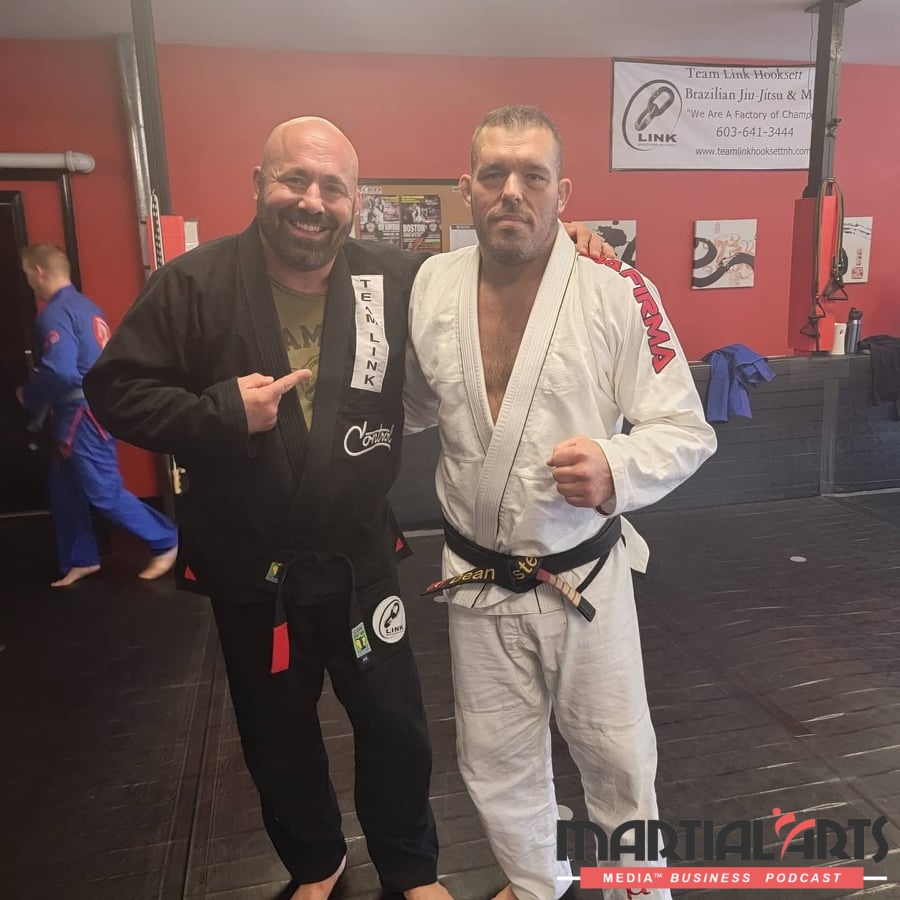
EDWARD: Yeah, we did the same thing. We actually, one day, myself, would do a jiu jitsu video with my student, he's, I've known him forever, and it was him and I. We'd do a jiu jitsu video, then the next day would use a video of something from someone else.
We used a lot of John Danaher, Gordon Ryan, stuff like that. And then the next day, I would do, like, a karate video for everyone, and then the next day, my student would do a kickboxing MMA video for them.
So, everyday we'll put out a video for the students, also to give them some content to study. And so, not only could you do classes, I would send these videos and post them to everyone, and they could go at home and practice those same combinations, three or four combi- you know, five different ways on how to do an overhand right, you know. How to do two pins in the proper way, you know, a form, you know, and so that worked out pretty well, too.
GEORGE: Sounds good. So, give us a bit of a background about your school and your location. And I know you've got a massive facility, and you've got two floors, and just give us a bit of an overview on the infrastructure and how things operate.

EDWARD: I've been here since 1999. I pretty much have always done martial arts since I was 14. And I just turned 50, so I've been doing it for a while. I just woke up one day and decided I didn't want to do my job anymore, and so then I'm gonna open up a school. Let's try it.
GEORGE: How long have you been…
EDWARD: So, 1999. Yeah. And so I found this, I found a location. And at first it was only, we only had about 2000 square feet, but I liked this location because it always had an opportunity to grow.
So, I started off with traditional karate, I always studied grappling and wrestling on my own on the side, and had already had a couple fights on the side, but I didn't really promote that too much.
Yeah. And then as we grew, we grew fast. For six months, we grew pretty quick. So, I got to open up another 1400 square feet or so in the back, and we used that room for a while. And then what I did is, I always had the basement downstairs, and it's a giant, like, two big garage, you know, basement.
And one day my landlord's, “Like, you know, if you want the space, I'll charge you this much for it. And, you know, just take it over and do what you want, you do the work. I'll give it to you cheap, and it's cheap.” And I was like, “Alright!” So, I did all the work, and then like I said, we got two open floors upstairs, bathrooms, office, all that stuff.
Downstairs is a couple different ways you can go in, it's got showers, a couple of locker rooms downstairs, a bag room, it's got a ring, a cage, and probably about a 1800 square foot, like, weight room too. So, I did the weight room originally for the parents, a lot of parents don't have time to go to the gym. So, I allow the parents for free at first to, while the kids are in class, go downstairs and run on the treadmill, lift some weights to do something.
That way they won't have to worry about their kids, they know they're doing class. But that took off, and you know, that was taking off pretty good. So, now I hired a personal trainer, you know, so he comes in – he does personal classes, you know, for the parents and you know, it's a little bit extra income off of that.
And stuff like that, you know, they scheduled privates for the kids, a lot of them they'll come down here and work with them during the kids class and get in shape.
So, you know, we got a little bit of everything. You know, kids are martial – all the kids' classes are fresh. We got kids BJJ, kids Muay Thai, kids kempo karate, and then usually at night time, it's a, you know, depending on the day, gi, the adult Muay Thai, adult MMA, adult BJJ, gi or no gi on the day, and then cardio kickboxing too.
And then we do stuff on the weekend – Saturday is a full day of classes, Sunday is kind of my day, I invite either the black belts in and we do like a black belt workout or I'll just invite some fighters in and we'll just train, so it's like a training day on Sundays for us. So, you know, it's a full time job. Like I said, it's like 8000 square feet, full time job, I have about – maybe now 330 students.
And yeah, you know, it has its moments. But, you know, I've been blessed throughout this whole pandemic, so I can't complain.
GEORGE: That's cool. So, you've got two names, right? Tokyo Joe's?
EDWARD: Yes.
GEORGE: Tokyo Joe's Studios and TeamLink MMA.
EDWARD: Yeah.
GEORGE: Curious on two names, but also Tokyo Joe's?

EDWARD: Well, my instructor, who was 14, was playing football, and he was in karate, and he's from East Boston, and he was doing some karate, was a football practice. And they just named him Tokyo Joe, you know, that was his nickname.
So, as he progressed and opened up his own school – he met me at – that was always his nickname. He called it Tokyo Joe's Studios. He named the downstairs his nickname.
And then I was at the Canadian Open as a karate tournament. And he had met me, he said, “Hey, you fought really well, why don't you come train with me?” And he goes, you know, “I'm like, alright.” And he was close by, so I started training with him, and, you know, competed under him, you know, in all these karate tournaments all over the place.
Also, I got a chance to train with like Johnny Tension, and Reggie Perry, who were part of the team, Paul Mitchell, who, you know, are World Champions too. So, it opened up some doors and ideas. And then one day, he's like, “You know, you should think about opening up a school, you're a great instructor, a great motivator, you're a good leader,” and I didn't really put much thought into it.
And then he kept bugging me and bugging me, and then one day, I'm out doing my job – construction – I was doing construction, driving some equipment. I'm like, “You know, yeah, it's time. I don't feel like doing this.” So, I went into the office and gave my notice and went back to him and said, “I guess we'll open up a school. Let's try it.”
So, that was the karate side of things.
GEORGE: Right.
EDWARD: I'd always done MMA on the side, I was part of Miletich Fighting Systems with Pat Miletich. And when I trained there with them, it was, you know, they had three out of the five UFC champions, it was one of the best gyms around, we did a lot of fighting and training there. But as they all got older and branched off, opened up their own gyms, and everything kind of disbanded.
I was just left with, like, no direction in my life; my BJJ program was only a purple belt at the time. And really know, you know, didn't know how to, you know, what to do. So, like I said, Michael Alvin, Gabriel Gonzaga, and Alexander Marino all came to me one day, because I trained with them, helped them out with fights and worked with them.
And they're like, “Why don't you just join us, you know, it'd be a great marketing thing for your BJJ program.” It's a little confusing for some people, but once they get in here, they realize, I kind of keep it separate, and I like keeping them separate, because I like the younger kids…
I think, you know, even though we do BJJ, we still teach a little bit of focus and concentration in that class, like a karate thing. I like them to learn about the focus and concentration side of things, you don't need to necessarily see all the hard work and training that goes into MMA.
Plus, parents, you know, sometimes they get the wrong opinion, they see the fights on TV, and they think that's what it's all about, and I don't want to give the parents that impression. So, that's why I have an upstairs and downstairs and stuff.
But it's actually become a great tool, because parents realize all the hard work and all the dedication that goes into that, that's their martial art, you know, that's their form, you know, while the kids are learning this stuff, they see the adults or the teenagers doing this, and they realize it's a lot of hard work if it's taught the right way.
So now, you know, like, whenever we have someone fight, you know, a tough fight passes, I gotta open up the school, we'll have a school full of people watching it on the TV, you know what I mean? Becomes a school party sort of, brings them all together, you know. Like you said, you try to try to create a good, you know, good atmosphere, you know, for everyone – good environment – and it brings them all together, the watch, the fights, and stuff like that.
So, it's kind of cool.
GEORGE: Because that would be my next question – how do you balance the two cultures? Do you find that they are divided or they sort of come together?

EDWARD: It's actually come together- at first, it was pretty divided. You know, when it first – the sport was starting to grow, it was pretty divided.
You know, people thought, you know, brutality, this, that and you know, and you can definitely understand that. But over the years, as time has gone on, people see it, you know, they've seen the fights, you know, parents have asked, you know, we've, like I said, they've, you know, they got, you know, a lot of kids would do karate competitions, you know.
So then, you know, now they have kids Muay Thai, very controlled, but kids Muay Thai and then, you know, they get kids BJJ. So, because of all these classes that we have, you know, kids getting involved in all these other smaller competitions, the parents are wanting to see what the adults and teens are doing and how that's evolved. So, it's actually brought it all kind of together.
You know, and everyone's, you know, everyone's… it's pretty cool to see everyone, like, you know, support. Everyone gets together, supports everyone and have fun, too. You have a lot of parents that will just come down on Wednesday nights, our sparring night, they'll just come down and just watch, you know, they get to – they bring their, you know, 10 year old kid and you know, “Is there sparring on Wednesday?” “Yeah.” “Can we come watch?” “Yeah, come on in!”
You know, you have a whole group that will just sit on the side to just watch, you know. This is awesome, you know, because they get a chance to see, you know, kicks, punches and stuff and blocks and wrestling, they're into – actual, you know. You get a lot of kids that don't compete, we don't force them to compete. If you want to compete, we can get them ready.
But it gets to see them, you know, put it in practical use, kind of, you know. So, they like watching it.
GEORGE: Perfect. So, just to change gears a little bit – back to the marketing aspect. You got a successful school, 300+ students. You mentioned word of mouth is good. What else contributes to the growth?
EDWARD: Community involvement. Like I said, but everything's changing now. The whole world's changing. I mean, you know what I mean.
When I first opened up, you know, you had to advertise in the yellow pages, you know, big giant ads in the yellow pages, you know, that was a thing. You had to – who had the biggest ad, you know, the big best looking ad in the Yellow Pages, then as time went on…
GEORGE: And your name's gonna start with ‘A', right? So, that you, like, at the front of the book.
EDWARD: Yeah, exactly! Yeah.
Then as time went on, you know, the Internet became more, it was, like, you know, websites were huge. You know, websites are still very important, and they're still a useful tool. But, you know, that was important then, you know, now social media, you know, the whole advertising world has changed so much over the 20+ years, you know.
So now, I'm just trying to stay on top of things. I do a lot of social media, I do a lot of posts, and I do a lot of contests, you know, within the schools. I do a lot of, like I said, I'm involved in the community, the schools, you know, certain fairs, certainly, you know, town fairs, this and that. Those are all advertising avenues for me, you know, when they have town fairs.
I do a community fair myself every – well, I haven't done the last couple years, because of the pandemic – but I rent all kinds of bouncy houses, obstacle courses, this and that, dunk tanks, and at the end of every summer, I do, like, a community thing, you know, everyone's welcome. We'll do a little open house, some demonstrations, and have a huge cookout for everyone.
And you know, it's just, advertising like that is big. I'm always looking though, like, you know, I know right now, you know, I got, I'm looking to step up on the digital side of things, pick up the digital side of things on marketing, some online, make my online presence a little bit better, is my goal for this year.
GEORGE: Perfect. So, I love the aspect of community. I mean, that's, I think that's just gold, right?
Because being involved in the community, it makes you stand out. It also builds your authority, you know, way behind just the martial arts you offer, but you mention, things are changing; what are you noticing that's changing the most, especially with just the world and online that's impacting your marketing the most?
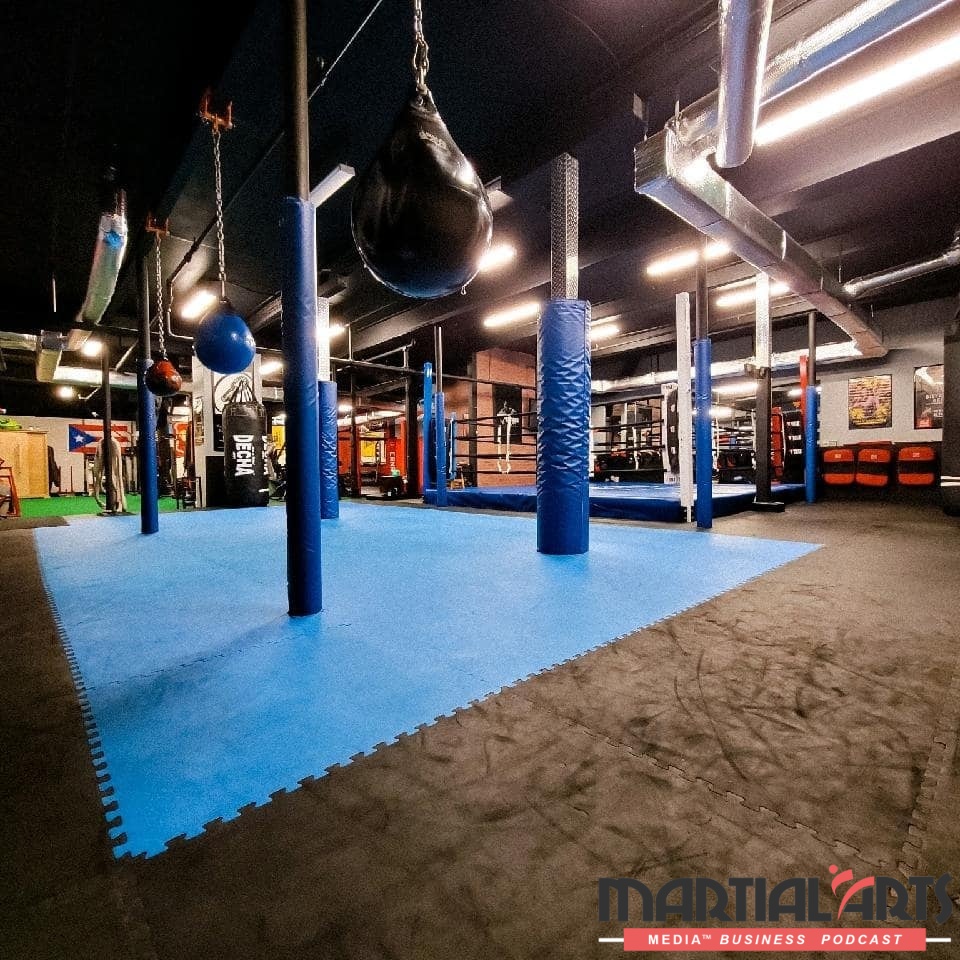
EDWARD: Really, it's just the online presence, you know, having a great online presence is very important now.
You know, before, it wasn't, but now, you know, a lot of you see a lot of the biggest school, you see ads all the time, you see this all the time, and, you know, these schools aren't spending that amount of money, if it's not working. You know, there's certain things out there, you know, and I know these school owners very well.
And I know that they're not putting these ads out there if it's not working. And I just noticed a huge online presence and how important it's becoming, you know what I mean? And, you know, before you had a whole script on the phone, you know, very rarely do I get phone calls now.
Now it's all emails, or sometimes even text messages. “Oh, my friend gave me your number, my son's in…” You know, it's emails, it's text messages. It's all online. “We've been to your Whatsapp, we've been to your Facebook page, you know, what about this…” So, just the online presence is becoming very important.
And just making sure, you know, your name's out there, and making sure you know, you promote your product, or whatever it may be – your services out there. There's what I think is the best, you know, is what's changing the most.
Before, you know, you're right. Fortunately, I have a great word of mouth. And that's great. I mean, like you said, you got great service, you got great products, you got it. But, you know, you can always do better. So, I definitely want to do the online presence thing.
GEORGE: I think school owners like yourself, where you benefit is you built this whole foundation without that. Fine tune the product, the delivery, the programs, the community aspect. When you elevate your online presence, it's really just fuel on the fire, because you've got all the foundations right here.
I mean, we like to really, especially now, in the work that we do with school owners, we really just try to think of the simplicity of it. And like you were saying, people don't really call anymore. So, when you look at that it's not, you know, the message is still the same. It's just the medium of communication is …
EDWARD: Exactly.
GEORGE: So, people, you know, you’ve got to ask permission before you call.
EDWARD: Yeah, yeah.
GEORGE: The world's just gotten like that. I always text someone and say, “Hey, is it okay to call you?” “Yeah, we just picked up the phone.” Right? But yeah, exactly. Messenger and, you know, Messenger, I mean, we find ads to Messenger is still the best thing ever, because of course, you've got the process to sign people up and work through the process.
There's so many things that we are seeing changing and, and like you said, I mean, I'm a web developer, from you know, way back and my first advice was always just get the spanky awesome website, and get it up on Google and you're good. Now I don't give that advice anymore.
You know, I would say, right, let's get your offer, right? And let's get your ad up, you know, let's get your message out there and find a simple way to follow up. And if you can get those things right, websites are good to have for the people that will go Google and check you out. But you can build a big organization just without that.
EDWARD: Exactly.
GEORGE: The only thing that always scares me is the control factor of putting all your eggs into a basket like Facebook. And you know, that's the one thing that drives your business, and if it's not there, well, I mean, I think it's still going to be there for a long time, right? But especially when you see things shuffle, and people change the different platforms, it's good to be tabs and be a bit omnipresent in that way that you can do without.
EDWARD: Exactly, I mean, it's definitely been interesting noticing the changes, that's for sure. Like you said, you know, everything.
I always tell everyone this, you know, I've helped a few people open up schools, and I just, you know, that's what I – get your online presence going, you know, well, what about this ad? No, you don't need that ad. It's not like the old days, you know, you don't need yellow pages, you don't need this, you don't need that.
Get your online presence up and going. You need a website, of course, you know, people still visit it and go on, you know, make sure you have this in your website. And like you said, the right content on the website that's going to attract the people that go to it. The right ads, the right deals and stuff like that.
Online presence is, you know, definitely one point for sure.
GEORGE: So, what's next for you, Edward? Like where are you guys going? Are you opening up more locations?
EDWARD: I don't know. Honestly, what's next for me is I've been really, I've been doing this for a long time. Just really been toying with the idea of doing another smaller location.
I don't know if I, you know, but before I've done that, I've been really trying to develop a good strong, solid staff here. I'm one of the few instructors, like, I enjoy teaching. And like some instructors enjoy running this school, you know, and then they have instructors teach for them.
I like still being on the floor, you know, with the kids and teaching, and I still like teaching them on the mat. I still teach BJJ, and people think I'm crazy, but I still teach up to 40+ classes a week. And, and I love it, but I'm also 50 now, so now I'm developing the staff, and the know-how, you know, really developing, like, I got some really good fighters that still have a few years left in them, but know that, you know, the end's coming… but unbelievable instructors.
So, I'm getting them involved, you know, developing a really solid foundation in the BJJ group of instructors, working on getting them, I got some unbelievable teens, getting them involved in them karate side of things and showing them and teaching them, you know, so that way, when that second location opportunity does come, I know that I'll be able to leave for the day and leave this place in good hands.
You know, staff training, and you know, picking the right people to find out. I want to be part of the team and make sure we share the same vision, you know what I mean?
And so that second location, within, you know, I got a goal – I set goals, but within a couple of years, I want to definitely have something up, the second one up and going, you know, like, you know, this school is all set. So, that's, that's really what I've been working on now.
GEORGE: Gotcha. And I guess lastly, what are you most excited about? For the next couple of years?
EDWARD: Just growing. You know, I love it. There's, like, you know, we had, you know, already since January. It's, you know, what's today? The seventh. We've had, you know, it's always the New Year rush, but we had 14 new people sign up. So, it's been great.
I love getting the new people going, you know, I just love teaching. I just love growing and, you know, and just helping people out. You know, I can't complain. I got a – I have a great job – and so I mean, what's next is just to keep growing, keep having fun, and keep sharing what I love to do.
And, you know, hopefully the second location will come in a few years and go from there.
GEORGE: Sounds good. Hey, Ed, thanks so much for jumping on. Been great to chat, and just the title of your book again?
EDWARD: Lift Them Up.
GEORGE: Lift Them Up.
EDWARD: Yeah, definitely on Amazon.com and Barnes and Nobles, it's also on Barnes and Nobles website too. So, if they want to check it out, please check it out. It's a great book on bullying. You know, all the different types of bullying that are out in the world today. So, definitely check it out.
GEORGE: Perfect. We'll link it up in the show notes. So, wherever you're watching or listening, it will be https://martialartsmedia.com/126, numbers one-two-six. That'll take you there. And just lastly, any shout-outs you want to give or any way that people can connect with you, if you're open to that?
EDWARD: Yeah, you can always, you know, we just talked about it, you could always hit me up, you know, of course, my email is at tokyojoeshooksit@comcast.net.
You can always hit me up on Facebook, under Ed Carr, or you can visit the school webpage, Tokyo Joe's Studios, Instagram, I'm on Instagram – @tokyojoesstudios – and on Twitter. So, those are the best ways, like I said, we're talking about social media and stuff. You know, that's what people use.
The best way to hit me up, send me a message. Ask me any questions. You know, you can call the school, 603-641-3444, if you want. Ask me any questions you want. I'm always here and always willing to help.
GEORGE: Fantastic. Ed, thanks so much. I'll chat to you soon.
EDWARD: Thank you. Thank you very much. Thank you for having me.
GEORGE: You're welcome.
Here are 3 ways we can help scale your school right now.
1. Download the Martial Arts Media™ Mobile App.
It's our new private community app exclusive for martial arts school owners, with top courses, online events, and free resources to help grow your business. Click here to download for iPhone or Android (any other device).
2. Join the Martial Arts Media™ Academy Membership and become a Case Study.
I'm working closely with a group of martial arts school owners this month to get to 100+ students. If you'd like to work with me to help you grow your martial arts school, get started with our 7-day risk-free trial – Click Here
3. Work With Me and My Team Privately.
If you would like to work with me and my team to scale your school to the next level, fill out the form and apply HERE … tell me a little about your business and what you would like to work on together and I'll get you all the details – Click Here
Enjoyed the show? Get more martial arts business tips when you subscribe on iTunes for iPhone or Stitcher Radio for Android devices.
***NEW*** Now available on Spotify!



















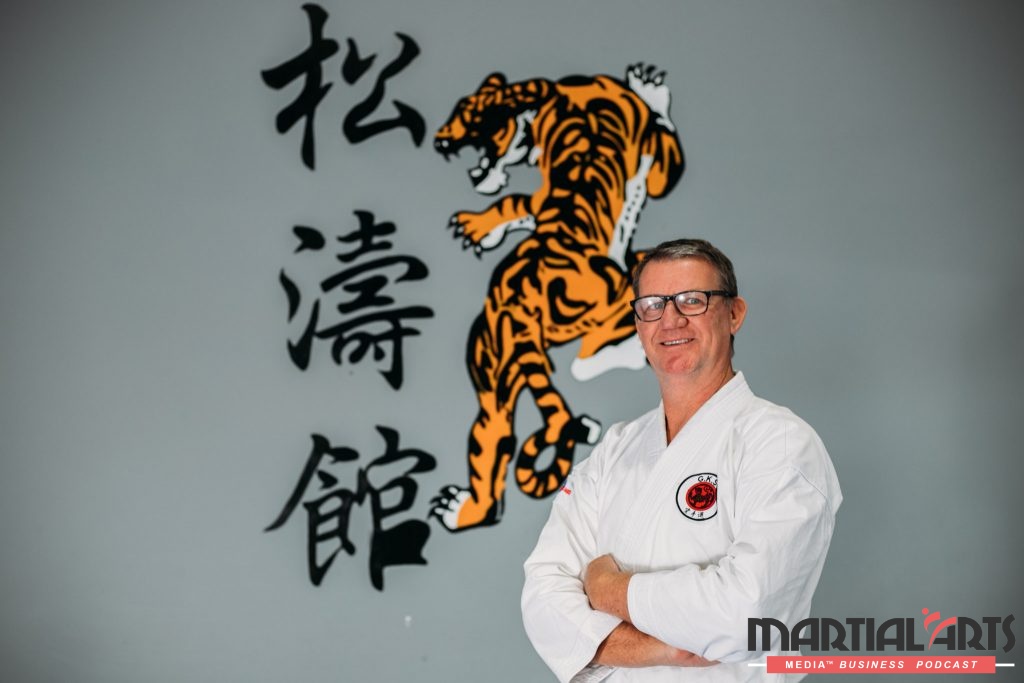







 BRETT
BRETT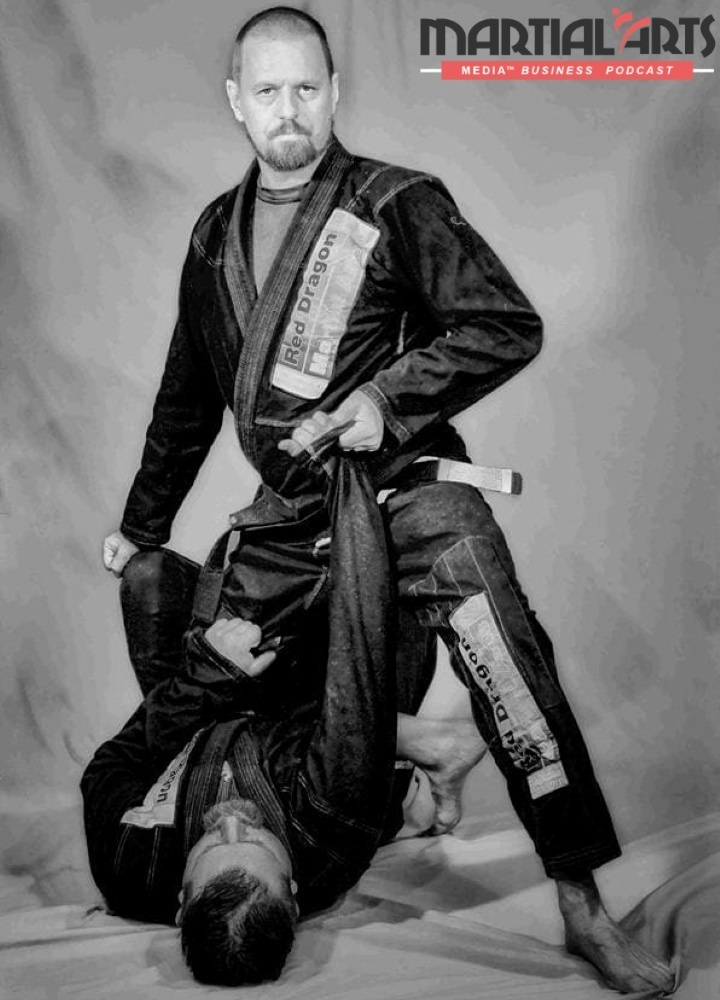
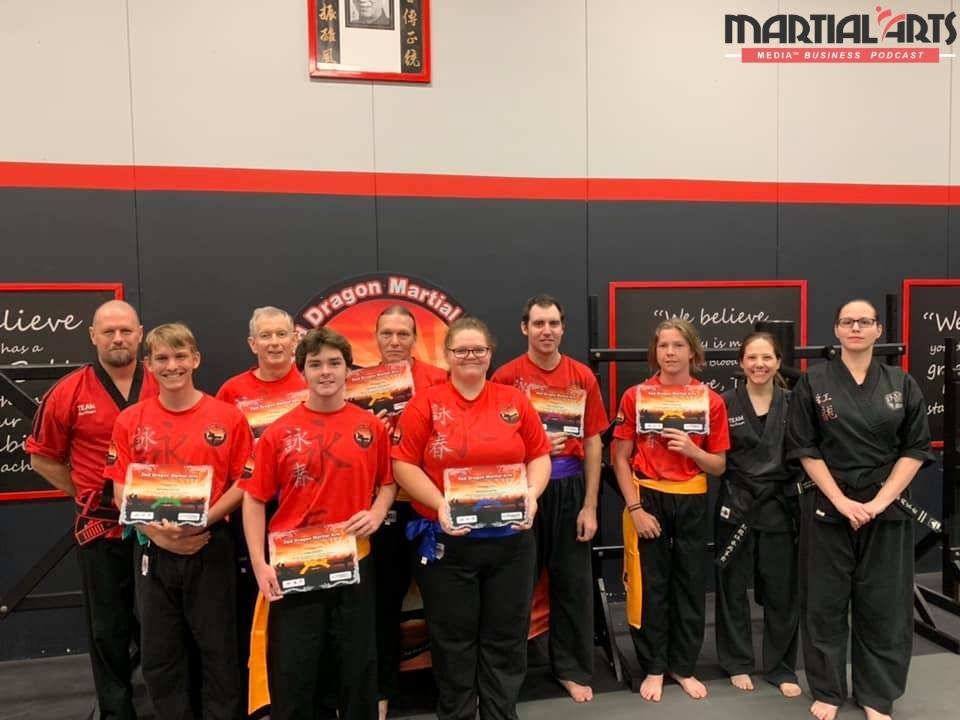
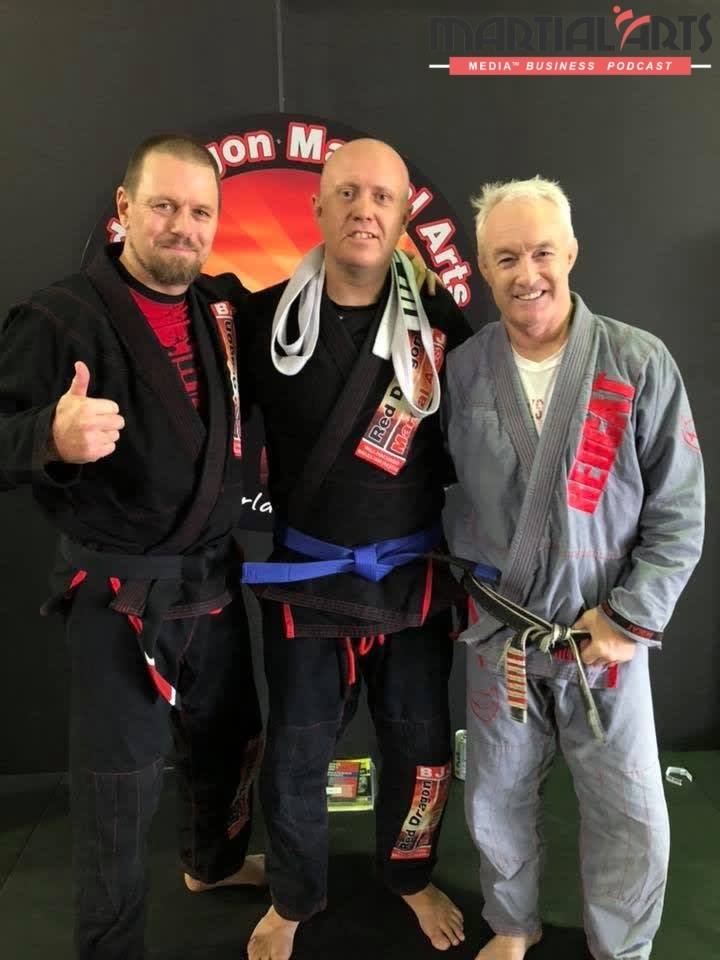
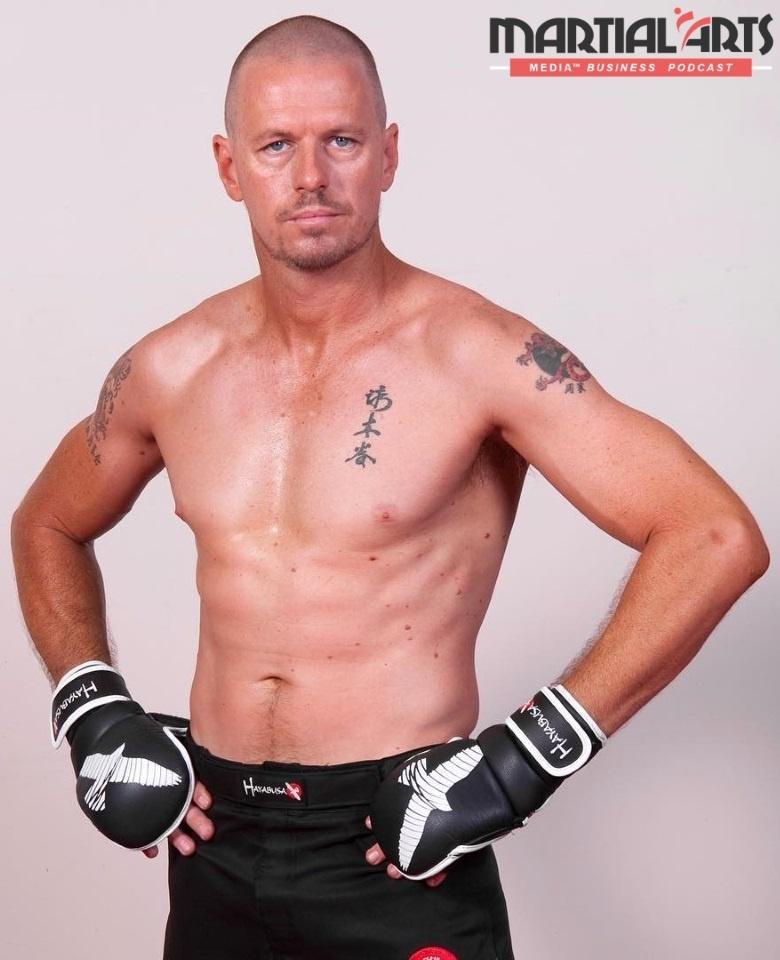



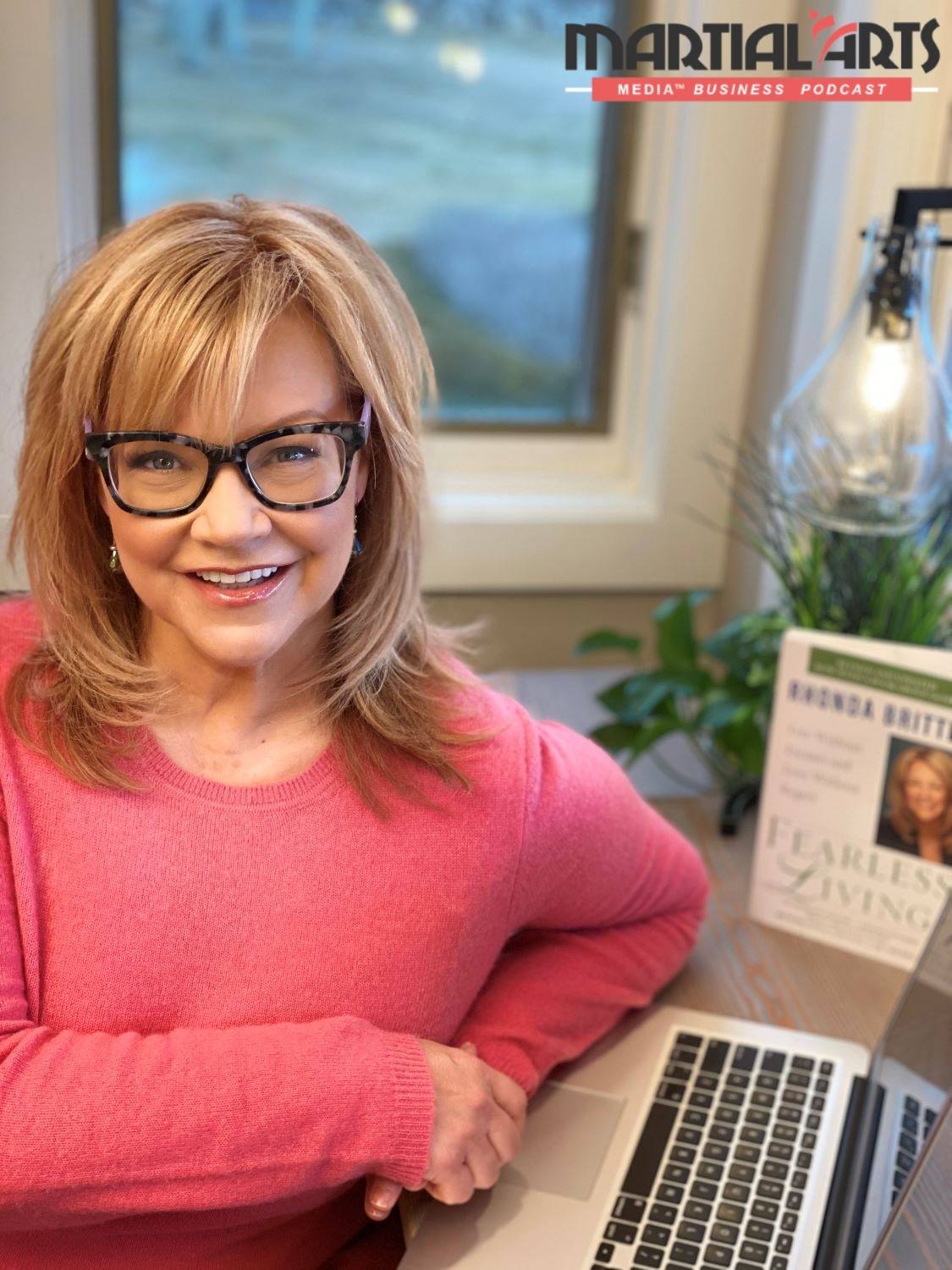 RHONDA:
RHONDA:
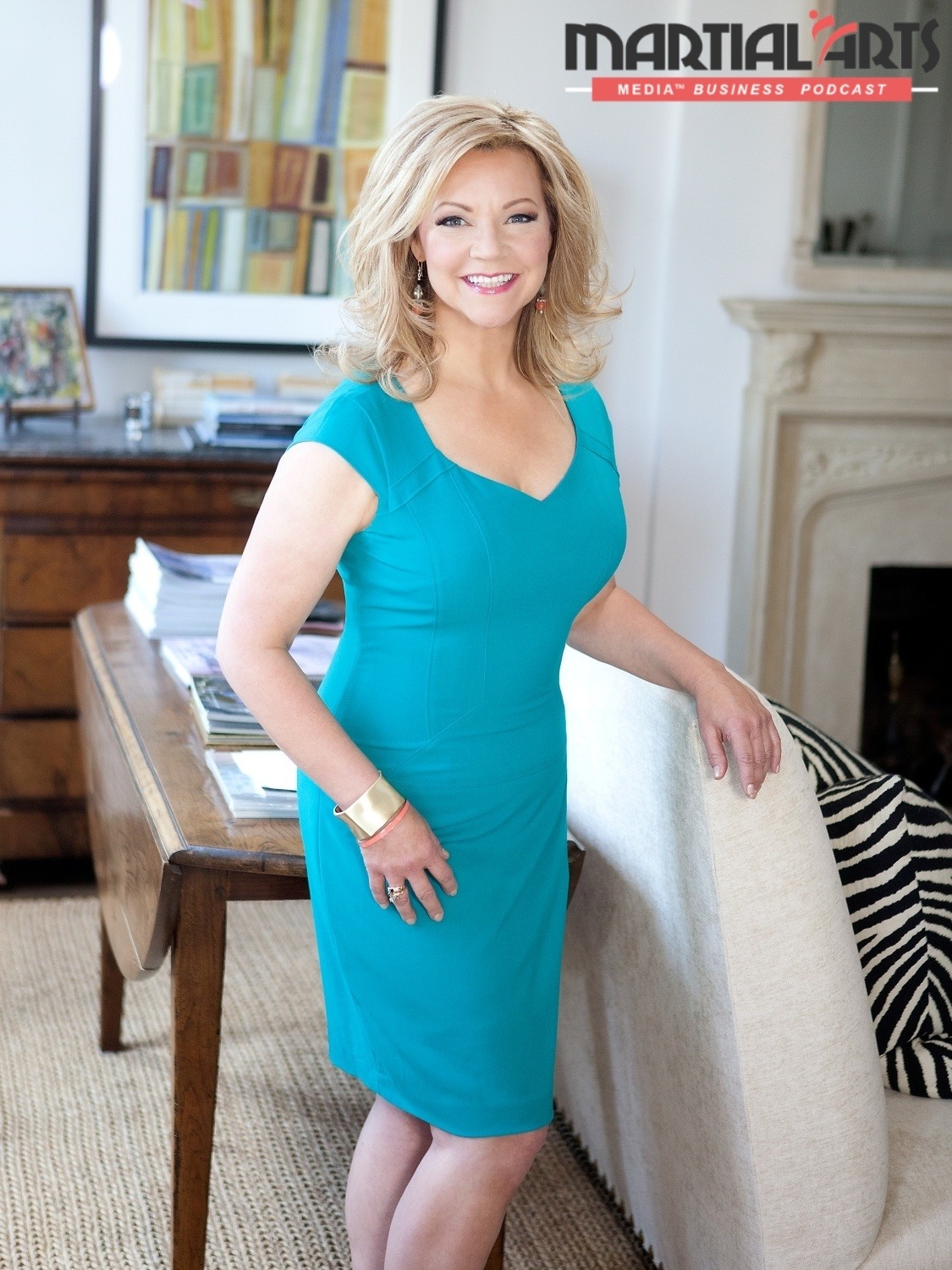 RHONDA:
RHONDA:


